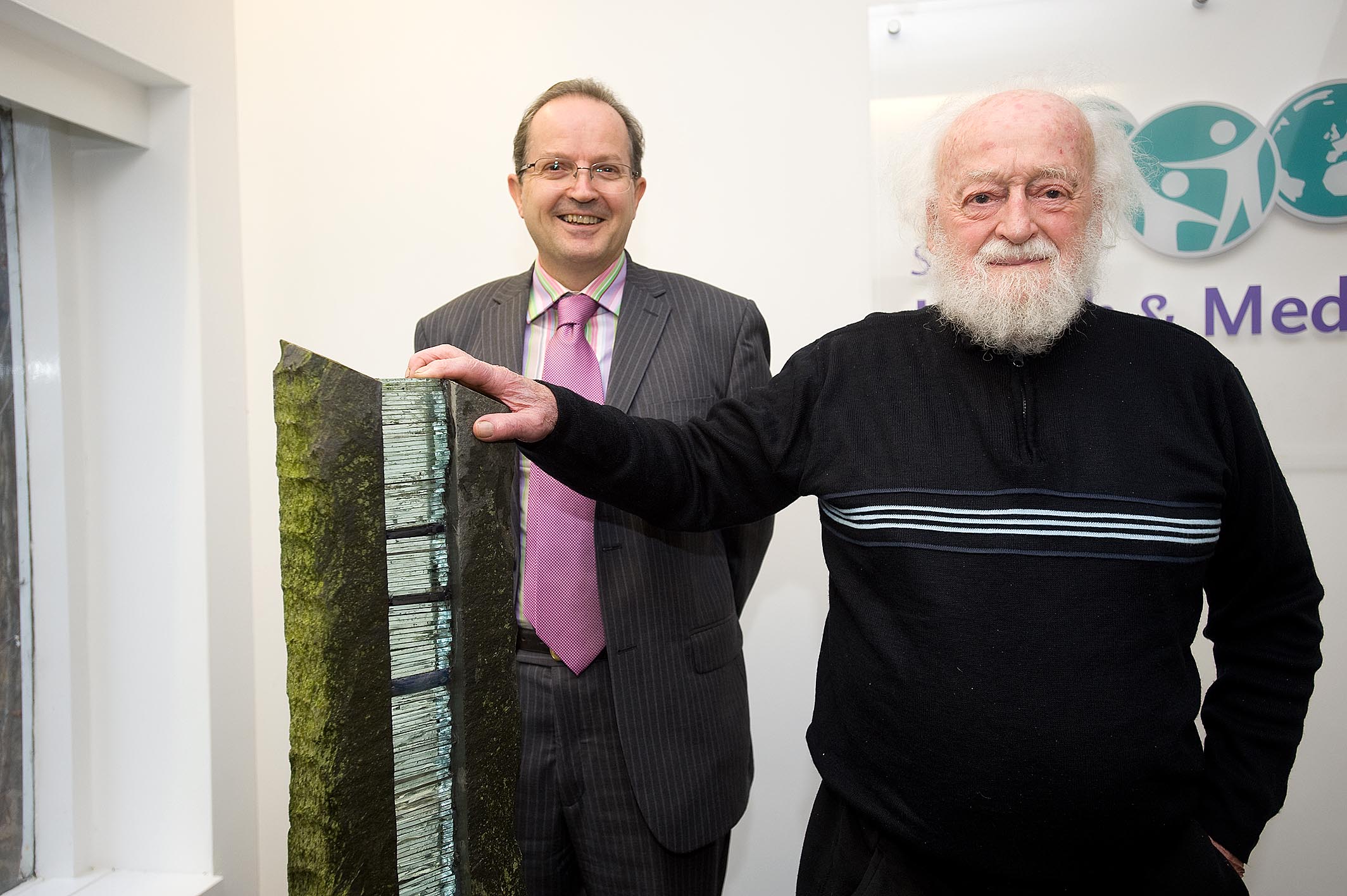Sculpture donation marks 10 year partnership between Lancaster University and NWCRF

The 10 year relationship between the North West Cancer Research Fund (NWCRF) and Lancaster University has been marked by the donation of a glass sculpture to the University by the Northwest artist Charles Bray.
Charles Bray was guest of honour at an event organised by the School of Health and Medicine on November 5th and unveiled the 5ft sculpture entitled ’Seeking the Light’.
Anne Jackson, Chief Executive of NWCRF and Professor Tony Gatrell, Dean of the School of Health and Medicine at Lancaster University were joined by the local volunteers from the charity’s Lunesdale branch and members of the University to celebrate the partnership.
Over the past 10 years NWCRF has funded about £1m worth of research at Lancaster University, which has helped boost the understanding of leukemia, prostate cancer and skin cancer by funding equipment, studentships and post doctoral researchers to work with leading cancer biologists at Lancaster. Most recently the NWCRF has funded work into DNA damage induced by UV light and its links to skin cancer at the University.
Professor Tony Gatrell said he was delighted to receive the sculpture on behalf of the University. “The sculpture is a beautiful object and will be enjoyed by current and future students and staff in the School, and by visitors, and it also acts as a permanent reminder of the partnership between the University and the NWRCF. Cancer affects everyone in some way, and this long relationship has enabled the University to carry out important research which contributes to the understanding of the disease.”
Charles Bray, who lives in Cumbria, is a Fellow of the Society of Glass Technology and a Fellow of the Royal Society of Arts. He also is the author of important glass art and glass technology reference books. Charles Bray has lost family members to cancer and supports the work that his granddaughter, Lucinda Bray, does on behalf of the charity. Several of his works are displayed around the NW including Grizedale Forest and Tullie House, Carlisle as well as numerous worldwide collections.
He said: “I have had a concern with cancer for several years, my wife was affected by breast cancer in the 1980s but with enormous determination and against all the projections she recovered only to be stricken with a brain tumour a decade later from which she eventually died.
“I heard of the ground breaking research that Lancaster University was very active in through North West Cancer Research Fund so it seemed appropriate to provide a form of recognition.
“The sculpture is made from slate and glass with the intention of showing light developing through the dark stone just like the findings emerging from the research.”